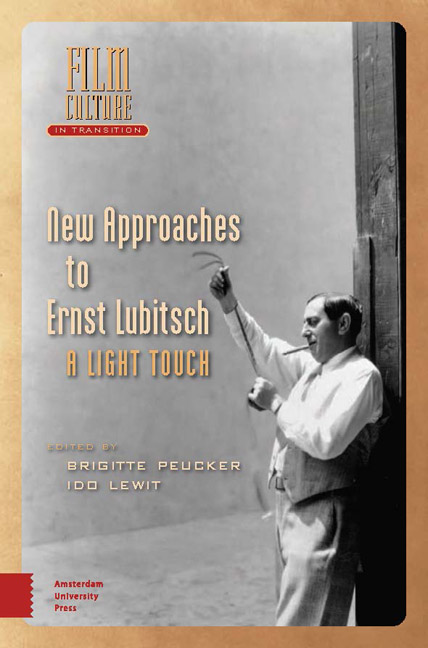15 - Films in Which Nothing Very Much Happens : Unstable Knowledge in Lubitsch’s Late Silent Work
Published online by Cambridge University Press: 16 April 2024
Summary
Abstract
Three films from Lubitsch's late silent period, The Marriage Circle (1924), Lady Windermere's Fan (1925), and So This Is Paris (1926), center on the marital woes and infidelities of well-off people. Characters try to figure out what others are thinking (in philosophical terms, the problem of other minds). Intersubjective relations are a guessing game, and the comedy and pathos here stem from occluded vision and partial knowledge. Jean Epstein stated his preference for films in which “not so much nothing as nothing very much happens.” Nothing very much happens in these films, which function as a unique set of hermeneutic entertainments in which the destabilization of perception is the true subject.
Keywords: hermeneutic, comedy, melodrama, ambiguity, Epstein, perception
To look at human beings from the outside is what makes the mind self-critical and keeps it sane. But the aim should not be to suggest that all is absurd, as Voltaire did. It is much more a question of implying, as Kafka does, that human life is always under threat and of using humour to prepare the ground for those rare and precious moments at which human beings come to recognise, to find, one another.
‒ Maurice Merleau-PontyIn 1922, Jean Epstein expressed a preference that, fifty years later, resonated strongly with my own still-inchoate cinephilia: “I want films in which not so much nothing as nothing very much happens.” In his view, a certain strain of cinematic experimentation had left narrative too far behind. Along these same lines, he later growled to fans of such non-narrative films as Ballet Mécanique (Léger, Murphy, et al., 1924) that, if you liked that kind of thing, you should go “buy a kaleidoscope.” But too insistent a narrative distracted from the power of cinema to observe (and magnify)—objects, relations, movements, time. Epstein found it more compelling to keep the spectator in a state of suspension and anticipation. “Drama that acts,” after all, “is already halfresolved and on the way to recovery.”
- Type
- Chapter
- Information
- New Approaches to Ernst LubitschA Light Touch, pp. 285 - 302Publisher: Amsterdam University PressPrint publication year: 2024



